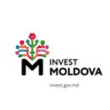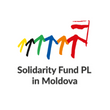Organizații vizate:
Achiziții de bunuri și contractări de servicii
- Detalii
- Categorie: Achiziție bunuri, Contractare Servicii
Call for proposals for performing External mid-term evaluation of the project
Informațiile prezentate în articolul de mai jos pot să nu mai fie actuale sau să nu mai reflecte activitățile și programele curente. Anunțul este păstrat în arhivă pentru a asigura transparența și accesul public la informațiile despre inițiativele și proiectele implementate anterior.
PA Ecological Society “BIOTICA” is inviting interested firms to submit their offer for the External mid-term evaluation of the project “Improving governance of protected areas in Moldova through institutional development, capacity development and habitat restoration” financed by the Austrian Development Agency with funds of the Austrian Development Cooperation and implemented by Public Association Ecological Society “BIOTICA” and Public Association EcoContact from the Republic of Moldova. Project duration is 01 May 2023-30 April 2027.
I. General information about the project
The project outcome is the increased effectiveness of protected areas from the Republic of Moldova in reducing biodiversity loss and achieving conservation outcomes through innovative governance models and sustainable management practices.
The project addresses a set of critical environmental and institutional challenges affecting protected areas (PAs) in the Republic of Moldova. These include inadequate governance and legal frameworks, weak institutional and management capacities within PA administrations, insufficient integration of ecosystem services into national and local planning, degradation of ecosystems and biodiversity, and low climate resilience of local communities living in and around PAs. Furthermore, there is limited awareness among stakeholders and the general public regarding the role of protected areas in biodiversity conservation and climate change adaptation.
The project has five expected outputs:
Output 1. Legal, fiscal, and information support for the integration of ecosystem services on the national and local levels provided;
Output 2. The ecological capacity of landscapes in the Codrii nature reserve and Orhei and Lower Dniester National Parks enhanced, and the delivery of ecosystem services increased, providing healthy habitats for species and a healthy environment for local communities;
Output 3. Improved capacity of protected areas' administrations for effective management;
Output 4. The resilience of local communities and capacities of stakeholders, including men, women, and vulnerable groups in protected areas management increased;
Output 5. Role of women in protected areas’ governance and economic diversification in rural areas strengthened.
The project will support the national level stakeholders in aligning the national legislation related to PAs to international standards and best practices. The project intends to contribute to the development of the capacities of the responsible organizations, administrations of protected areas, improving the management practices that will enable them to act more efficiently. Some nature restoration measures will be implemented, based on the developed environmental baseline assessment reports for the target PAs. The project will involve local communities into the process, work with them on the implementation of interventions in improving social infrastructure in the villages of National Parks (NPs) that address the most stringent problems, in order to raise their resilience and adaptive capacity to climate change. A wide information campaign and capacity development programme will be conducted to raise awareness of the citizens on protected areas management, biodiversity conservation and climate change adaptation. Gender considerations will be fully integrated into the activities, women in general and vulnerable groups present in all three PA communities will be encouraged to participate in all processes on the local level.
The Austrian Development Agency (ADA) is supporting the project, with funding from ADC (EUR 1,653,700), with co-funding in the amount of 124,300 Euro coming from PA ES BIOTICA, PA EcoContact, Sweden, as well as contribution for third parties.
II. Purpose of the mid-term evaluation
This mid-term evaluation is focused primarily to supply credible and reliable results for evidence-based decision making on strategic and operational levels and support the identification of why particular development interventions have worked or not, thus addressing two-fold evaluation purpose (steering and learning functions) as per ADA Evaluation Guidelines.
The main purpose of the mid-term evaluation is to conduct an evaluation of the overall project progress against the outcome, outputs and indicators of achievement as mandated by the donor ADA and stipulated in the project document / logical framework matrix. The evaluation is also intended to identify challenges, opportunities and lessons learned and makes recommendations that the project team and partners will use to adjust strategies, improve performance and strengthen implementation for the remaining implementation period of the project. Additionally, the insights will contribute to institutional learning for future project design and replication of effective practices.
Objectives:
- To assess the level of development of the legal framework and capacity for increased effectiveness of protected areas.
- To assess the effectiveness of the adaptation and climate resilience measures conducted in the frame of the project.
- To evaluate how the project has contributed to increasing the resilience of local communities and enhancing the capacities of stakeholders, including men, women, and vulnerable groups, in the management of protected areas,
- To evaluate how the project has contributed to the strengthening the role of women in protected areas’ governance and rural economic diversification.
- To identify lessons learned related to project design, implementation strategies, stakeholder engagement, and cross-cutting issues such as gender and climate resilience and provide recommendations for the remaining implementation period.
Scope
The mid-term evaluation will cover the assessment of the activities that have been implemented since the beginning of the project till the time of the evaluation, encompassing all components of the project.
Timing: The evaluation will take place in the period July-November 2025.
Geographical area to be covered: The assessment must cover: Lower Dniester National Park, Orhei National Park, as well as Codrii nature reserve.
Thematic focus to be covered by the evaluation: climate change adaptation measures and institutional development aspects in the region, as well as activities targeting the strengthening of local community resilience, and the role of women in environmental governance and rural economic diversification.
Evaluation questions
To address the scope of the evaluation, following OECD DAC the following criteria will be within the scope of this evaluation: relevance and effectiveness.
Relevance: Is the intervention doing the right things?
Effectiveness: Is the intervention achieving its objectives?
The evaluation should be able to answer the following questions:
Relevance:
- To what extent was the project design aligned with national environment planning priorities?
- To what extent are project activities and outputs aligned with the current needs and demands of project target groups?
- Were the objectives of the project clear, realistic and likely to be achieved within the established time schedule and with the allocated resources?
Effectiveness:
- To what extent were the planned activities and outputs of the project achieved, what were the factors that contributed to their achievement or non-achievement, and were there any unintended (positive or negative) effects resulting from the project interventions?
- How did factors outside of the control of the project affect project implementation and achievement of the project outcome / outputs and how did the project deal with these external factors?
- What are the reasons for deviations from the project implementation plan / time schedule? Were the steering measures set by the project (if any) effective and appropriate?
- To what extent were the recommendations from the gender and social standards appraisal included in the project?
III. Requirements for the Evaluation team
- The evaluation will be done by an evaluation team consisting of at least 2 experts (senior evaluator and evaluator);
- Each member of the team must be significantly involved in direct data collection and needs to have solid experience particularly in planning and conducting semi-structured interviews and focus group discussions;
- Evaluation team must not have been involved in the design or implementation of the project being evaluated;
- Experience in evaluating projects implemented in the Republic of Moldova would be an advantage.
The senior evaluator should be assigned to lead the process. He/she should be supported at least by one evaluator.
Mandatory Competencies for the Senior evaluator:
- University degree or equivalent background in law, environmental sciences, biology, chemistry, economy, or other relevant disciplines;
- Specialized training in evaluation and project management (confirmed by certificates);
- At least three evaluations conducted as a team leader during the last five years within the CEE region;
- Excellent knowledge of English and Romanian.
Mandatory Competencies for the evaluator:
- University degree or equivalent background in relevant disciplines, with specialized training in areas such evaluation, project management, environment;
- Participation in at least three evaluations of projects;
- Relevant professional experience in design and management of evaluation process, project planning, monitoring and management;
- Knowledge of English and Romanian.
IV. Specifications for the Submission of Offers
The offer should include:
- Technical proposal (description of approach and methodology – up to 4 pages);
- CVs;
- Links to the evaluation reports in English from previous assignments if available.
- Financial proposal (in Euro, for the whole implementation of assignment) including travel, communication, health insurance and other relevant costs;
The intended start date is 15 July 2025. The evaluation team will be engaged in the period 15 July 2025-30 November 2025 for a maximum of up to 85 working days. The evaluation team will deliver the final evaluation report by 30 November 2025.
The detailed Terms of References can be required by email at biotica.md@gmail.com or be downloaded here: DOCS_BIOTICA.com
Qualified firms are invited to submit their proposals by at the latest by 20 May 2025 to biotica.md@gmail.com with the copy to liliana.josan@bioticamoldova.org.
- National Consultant for development of institutional assessment and capacity building report for operationalization of the digital National Farmers Registry (UNDP)
- Montator(oare) imagine
- International Consultant for dam-breaching modelling, risk assessment, and capacity building (UNDP)
- BNM angajează Economist principal responsabil de raportarea financiară
- Agenția de Dezvoltare Regională Centru angajează: Expert în domeniul mediului și social
Achiziții și Contractări pe Telegram
Nu pierdeți niciun anunț de achiziție bunuri/contractare servici postat pe site! Urmăriți Canalul dedicat pe Telegram:

Top organizatii
2025 CIVIC DIGITAL SOLUTIONS
Email: support@portal.civic.md








